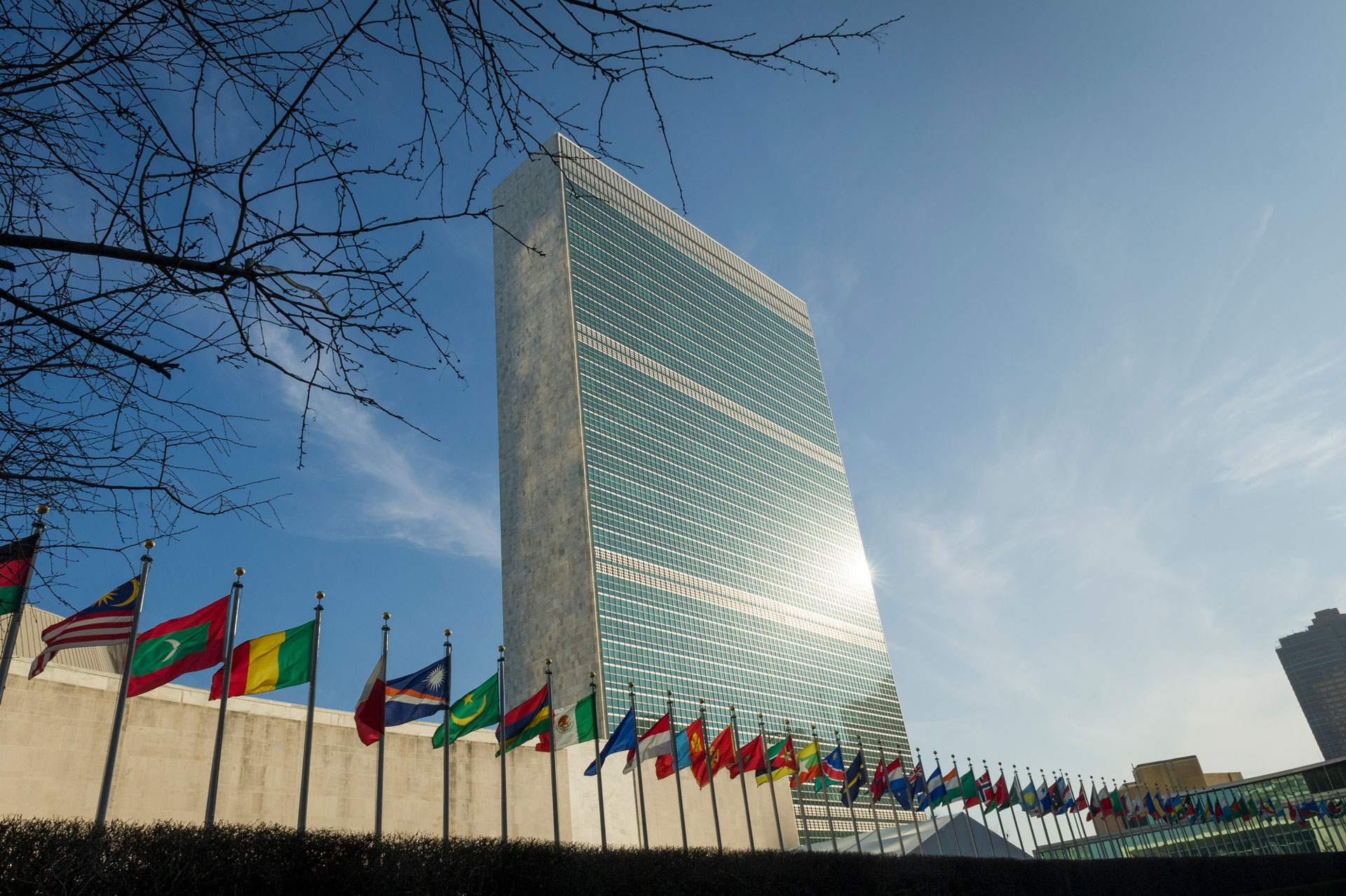
A view of the Secretariat Building, with Members States’ flags flying in the foreground, at United Nations headquarters in New York.
To keep peace throughout the world;
To develop friendly relations among nations;
To help nations work together to improve the lives of poor people, to conquer hunger, disease and illiteracy, and to encourage respect for each other's rights and freedoms;
To be a centre for harmonizing the actions of nations to achieve these goals.
The UN Charter established six principal organs of the United Nations: the General Assembly, the Security Council, the Economic and Social Council, the Trusteeship Council, the International Court of Justice, and the Secretariat.
The work of the United Nations reaches every corner of the globe. Although best known for peacekeeping, peacebuilding, conflict prevention and humanitarian assistance, there are many other ways the United Nations and its System (specialized agencies, funds and programmes) affect our lives and make the world a better place. The Organization works on a broad range of fundamental issues, from sustainable development, protecting the environment and supporting refugees, disaster relief, countering terrorism, disarmament and non-proliferation, to promoting democracy, human rights, gender equality and the advancement of women, governance and international health, clearing landmines, expanding food production, and more.
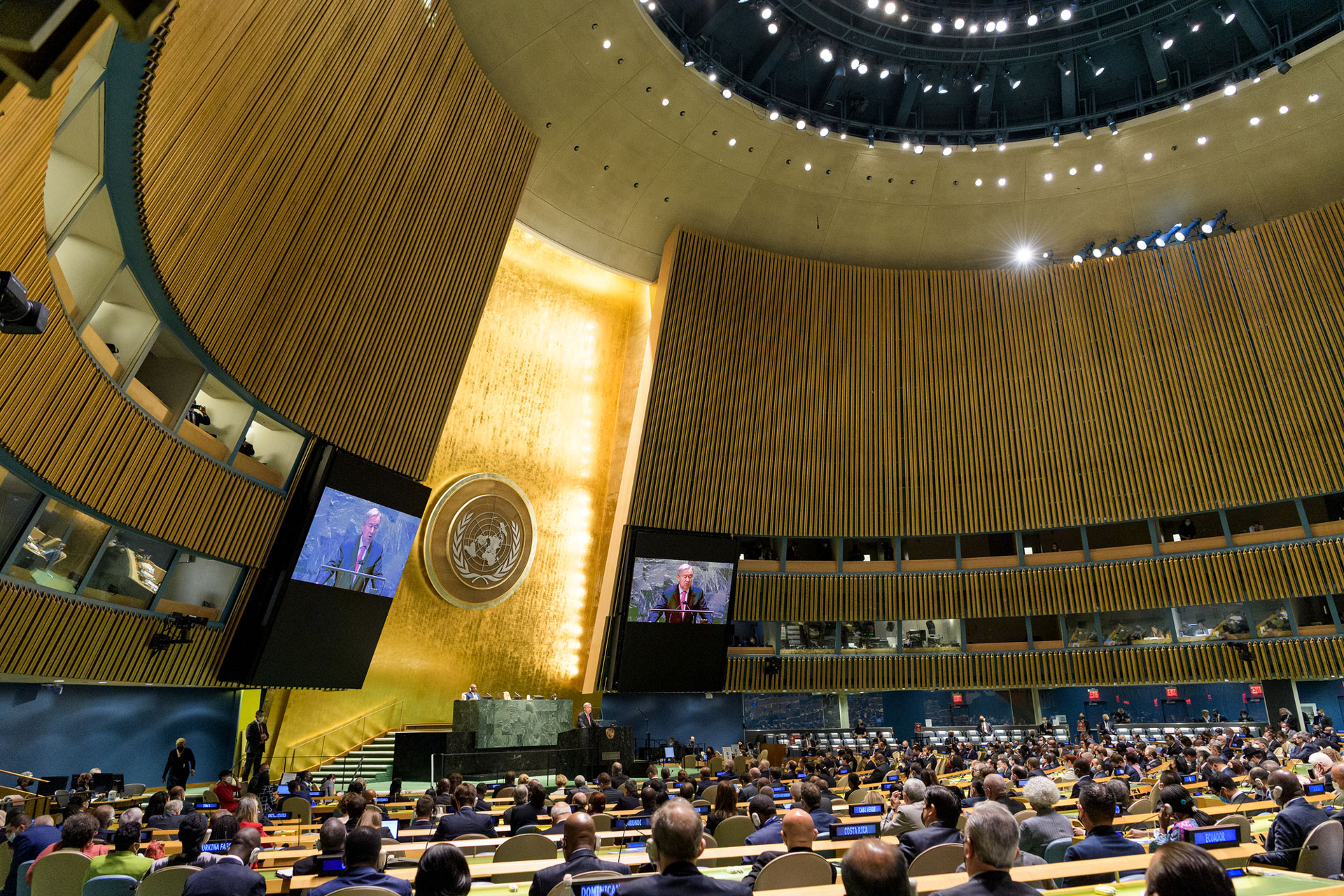
A wide view of the General Assembly Hall as Secretary-General António Guterres (at podium and on screens) addresses the general debate of the General Assembly’s seventy-sixth session.
The General Assembly is the main deliberative, policymaking and representative organ of the UN. All 193 Member States of the UN are represented in the General Assembly, making it the only UN body with universal representation. Each year, in September, the full UN membership meets in the General Assembly Hall in New York for the annual General Assembly session, and general debate, which many heads of state attend and address. Decisions on important questions, such as those on peace and security, admission of new members and budgetary matters, require a two-thirds majority of the General Assembly. Decisions on other questions are by simple majority. The General Assembly, each year, elects a President to serve a one-year term of office.
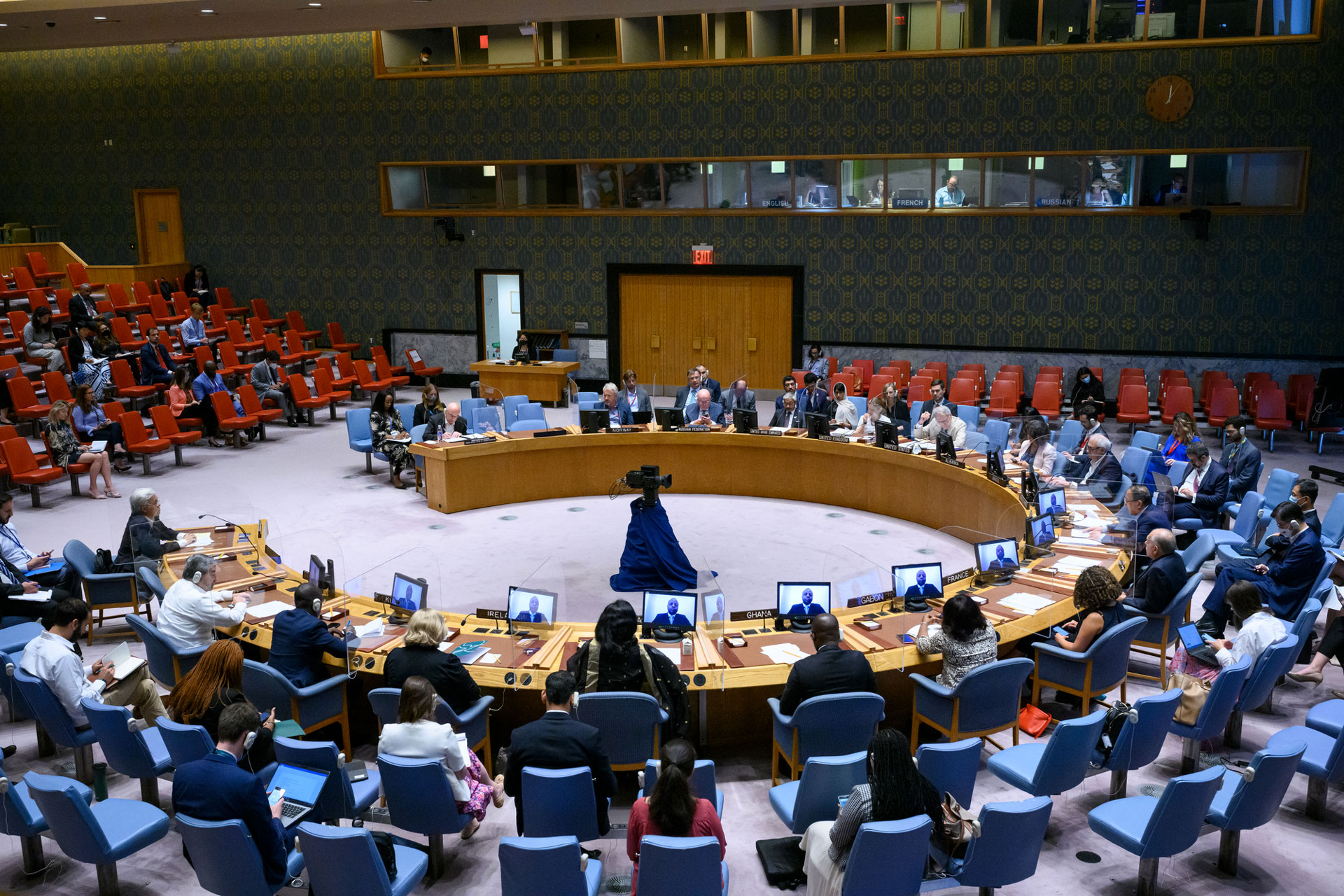
A view of the Security Council meeting on threats to international peace and security caused by terrorist acts.
The Security Council has primary responsibility, under the UN Charter, for the maintenance of international peace and security. It has 15 Members (5 permanent and 10 non-permanent members). Each Member has one vote. Under the Charter, all Member States are obligated to comply with Council decisions. The Security Council takes the lead in determining the existence of a threat to the peace or act of aggression. It calls upon the parties to a dispute to settle it by peaceful means and recommends methods of adjustment or terms of settlement. In some cases, the Security Council can resort to imposing sanctions or even authorize the use of force to maintain or restore international peace and security. The Security Council has a Presidency, which rotates, and changes, every month.
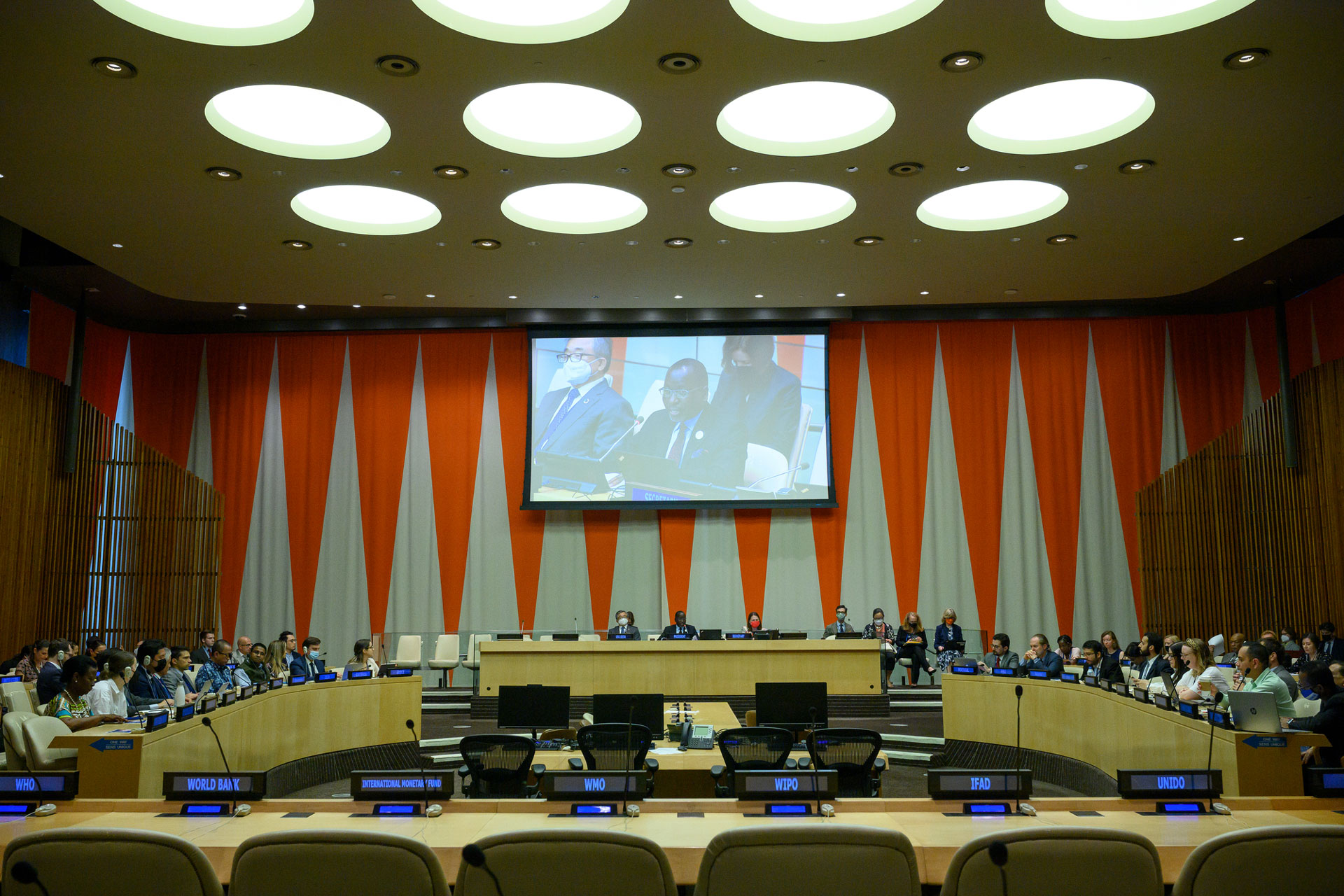
Opening of 2023 Session of Economic and Social Council.
The Economic and Social Council is the principal body for coordination, policy review and dialogue and recommendations on economic, social and environmental issues, as well as implementation of internationally agreed development goals. It supervises subsidiary and expert bodies in the economic, social and environmental fields. It has 54 Members, elected by the General Assembly for overlapping three-year terms. It is the United Nations’ central platform for reflection, debate, and innovative thinking on sustainable development.
The Trusteeship Council was established in 1945 by the UN Charter, under Chapter XIII, to provide international supervision for 11 Trust Territories that had been placed under the administration of seven Member States, and ensure that adequate steps were taken to prepare the Territories for self-government and independence. By 1994, all Trust Territories had attained self-government or independence. The Trusteeship Council suspended operation on 1 November 1994. By a resolution adopted on 25 May 1994, the Council amended its rules of procedure to drop the obligation to meet annually and agreed to meet as occasion required -- by its decision or the decision of its President, or at the request of a majority of its members or the General Assembly or the Security Council.
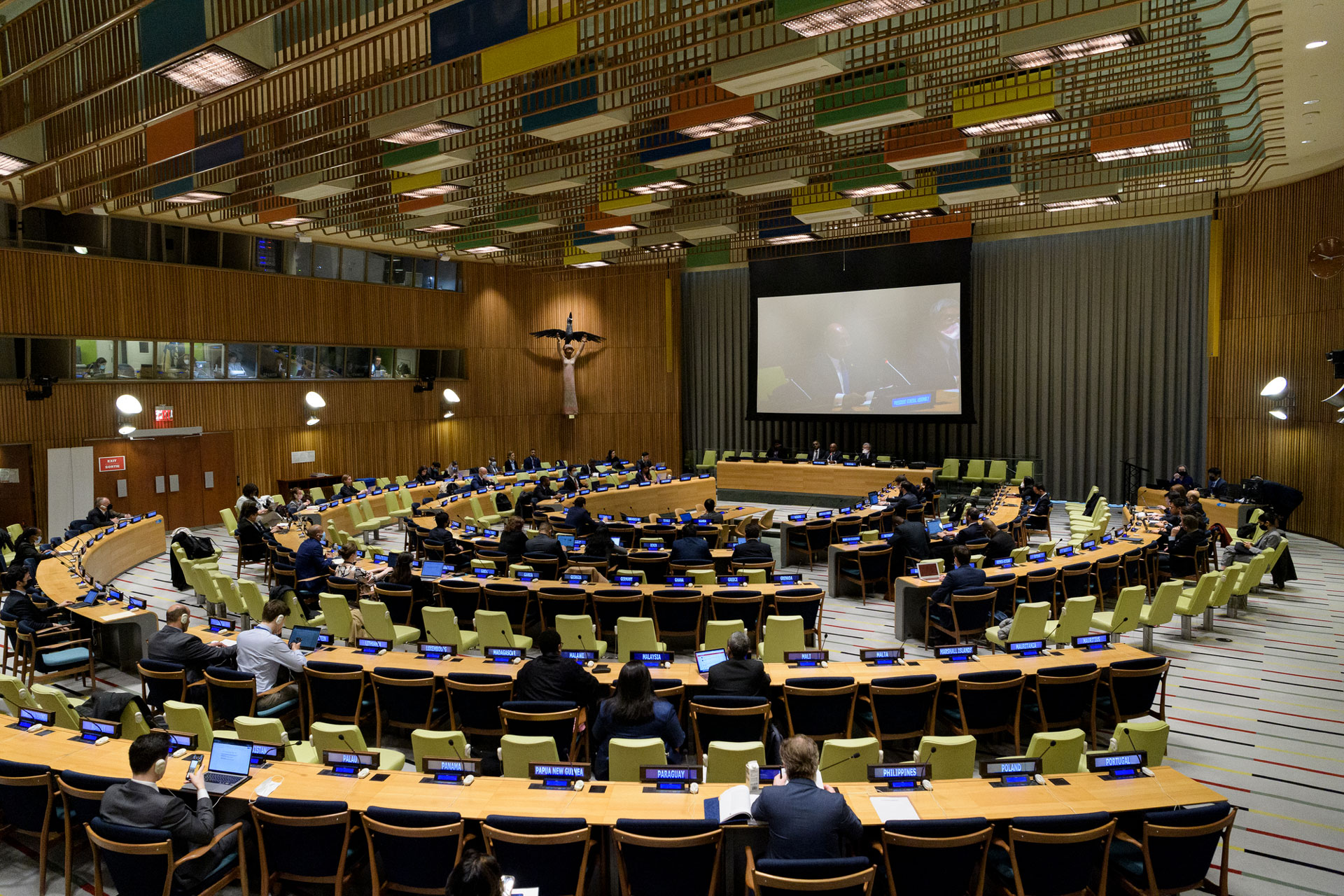
A wide view of the Trusteeship Council Chamber during the event “Interactive Dialogue of the Assembly on Commodity Markets”.
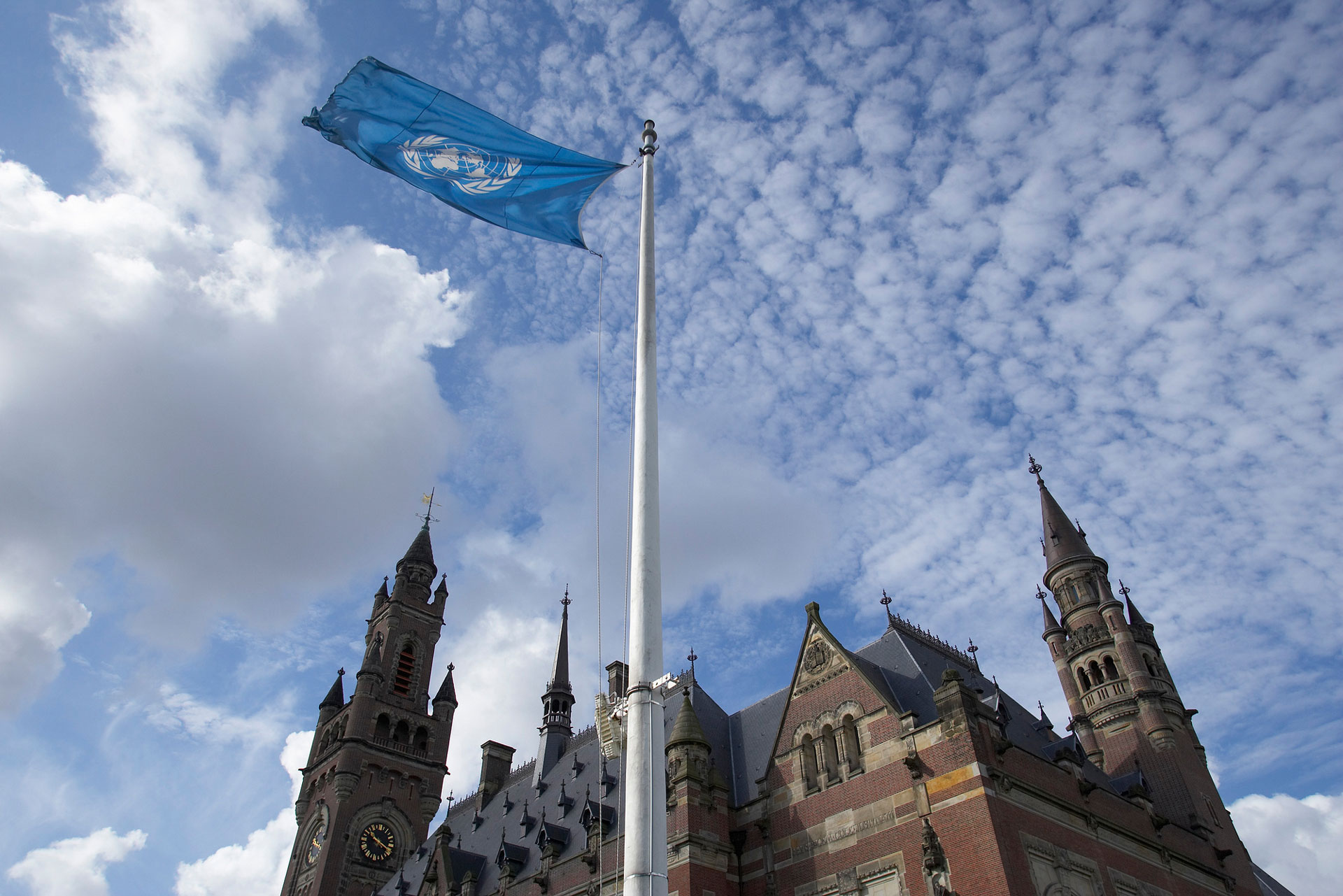
The Peace Palace, seat of the International Court of Justice (ICJ), at The Hague, Netherlands.
The International Court of Justice is the principal judicial organ of the United Nations. Its seat is at the Peace Palace in The Hague (Netherlands). It is the only one of the six principal organs of the United Nations not located in New York (United States of America). The Court’s role is to settle, in accordance with international law, legal disputes submitted to it by States and to give advisory opinions on legal questions referred to it by authorized United Nations organs and specialized agencies. The International Court of Justice functions in accordance with its Statute.
The Secretariat - international staff working in duty stations around the world - carries out the diverse day-to-day work of the Organization. It services the other principal organs of the United Nations and administers the programmes and policies laid down by them. At its head is the Secretary-General, who is appointed by the General Assembly on the recommendation of the Security Council for a five-year, renewable term. The Secretary-General is also a symbol of the Organization's ideals, and an advocate for all the world's peoples, especially the poor and vulnerable. António Guterres is the ninth Secretary-General of the United Nations.
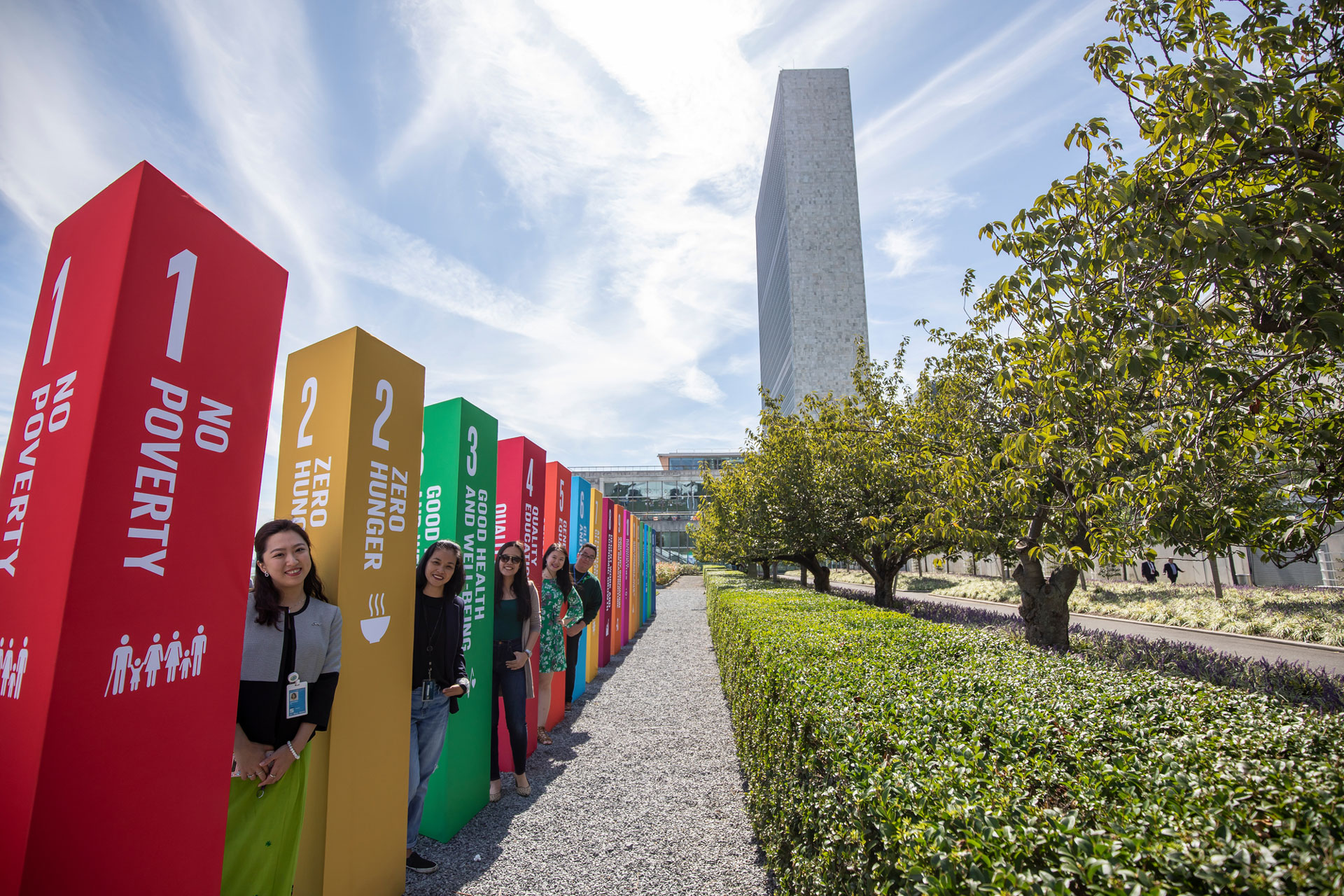
UN Staff members stand outside the SDG Action Zone on the lawn of UN Headquarters.
The UN Charter describes the Secretary-General as "chief administrative officer" of the Organization, who also performs "such other functions as are entrusted" to him or her by the Security Council, General Assembly, Economic and Social Council and other United Nations organs.
The Charter also empowers the Secretary-General to "bring to the attention of the Security Council any matter, which in his or her opinion may threaten the maintenance of international peace and security". These guidelines both define the powers of the office and grant it considerable scope for action.
The Secretary-General needs to take careful account of the concerns of Member States, but they must also uphold the values and moral authority of the United Nations, and speak and act for peace, even at the risk, from time to time, of challenging or disagreeing with those same Member States.
That creative tension accompanies the Secretary-General through day-to-day work that includes attendance at sessions of United Nations bodies; consultations with world leaders, government officials, and others; and worldwide travel intended to keep them in touch with the peoples of the Organization's Member States and informed about the vast array of topics of international concern that are on the Organization's agenda. Each year, the Secretary-General issues a report on the work of the United Nations that appraises its activities and outlines future priorities.
The Secretary-General is appointed by the General Assembly, on the recommendation of the Security Council, as stated in Article 97 of the UN Charter.
Although there is technically no limit to the number of five-year terms a Secretary-General may serve, none so far has held office for more than two terms.
The ninth Secretary-General follows in the steps of:
Ban Ki-moon (Republic of Korea), who held office from January 2007 to December 2016;
Kofi A. Annan (Ghana), who held office from January 1997 to December 2006;
Boutros Boutros-Ghali (Egypt), who held office from January 1992 to December 1996;
Javier Pérez de Cuéllar (Peru), who served from January 1982 to December 1991;
Kurt Waldheim (Austria), who held office from January 1972 to December 1981;
U Thant (Burma, now Myanmar), who served from November 1961, when he was appointed acting Secretary-General (he was formally appointed Secretary-General in November 1962) to December 1971;
Dag Hammarskjöld (Sweden), who served from April 1953 until his death in a plane crash in Africa in September 1961; and
Trygve Lie (Norway), who held office from February 1946 to his resignation in November 1952.
"On this UN Day, let's stand together and fulfil the extraordinary promise of your United Nations. Let's show the world what is possible when "we the peoples" choose to act as one." — António Guterres
Around 30 educators from Austria and Slovakia joined two workshops at the United Nations in Vienna to explore how to integrate the United Nations, human rights, and sustainable development into their teaching. They heard about educational tools, collaborated on classroom activities, and learned from UN experts about global issues.
In these challenging times, the United Nations continues to demonstrate its vital role through concrete, measurable impact.
Read more about its work & results delivered across the UN system in the Annual Report.
Global military spending reached an unprecedented $2.7 trillion in 2024 amid intensifying wars and rising geopolitical tensions worldwide.